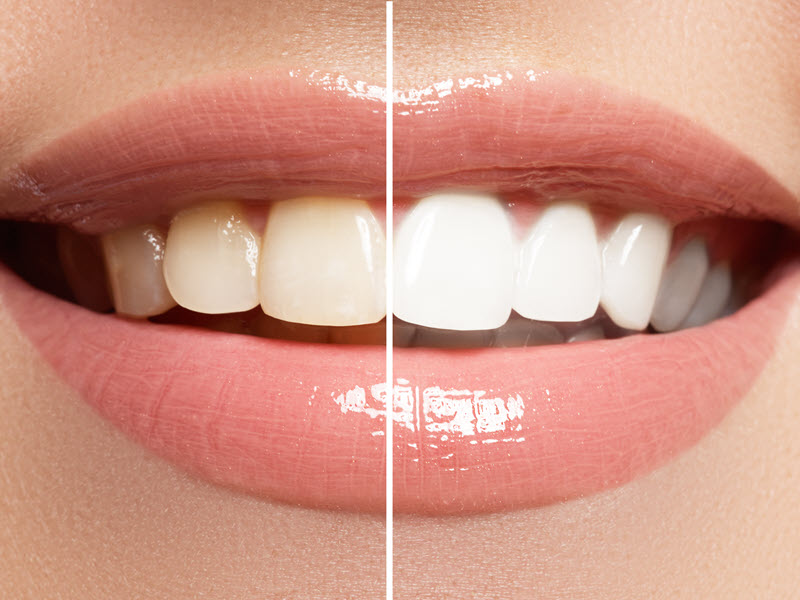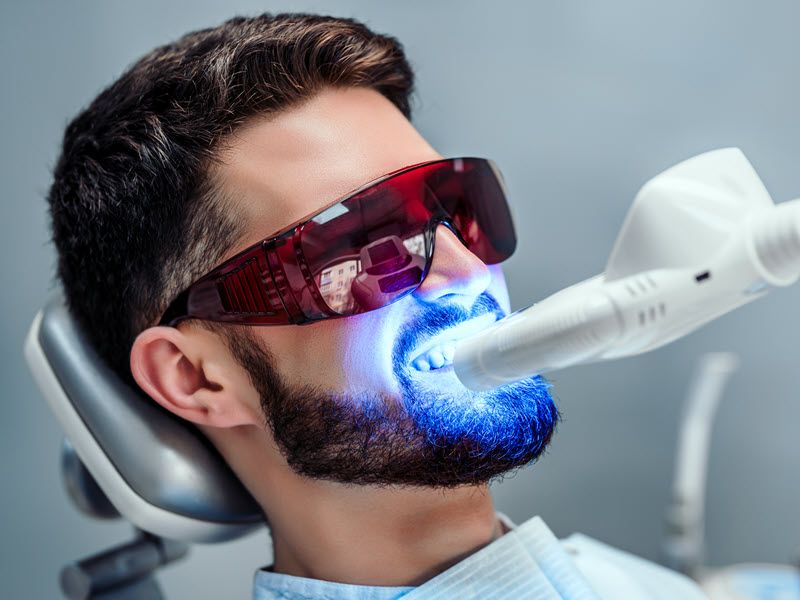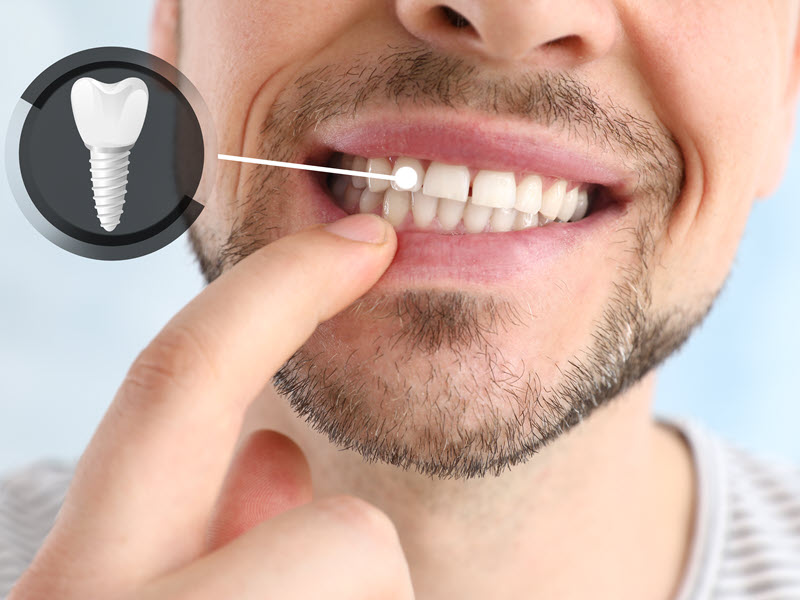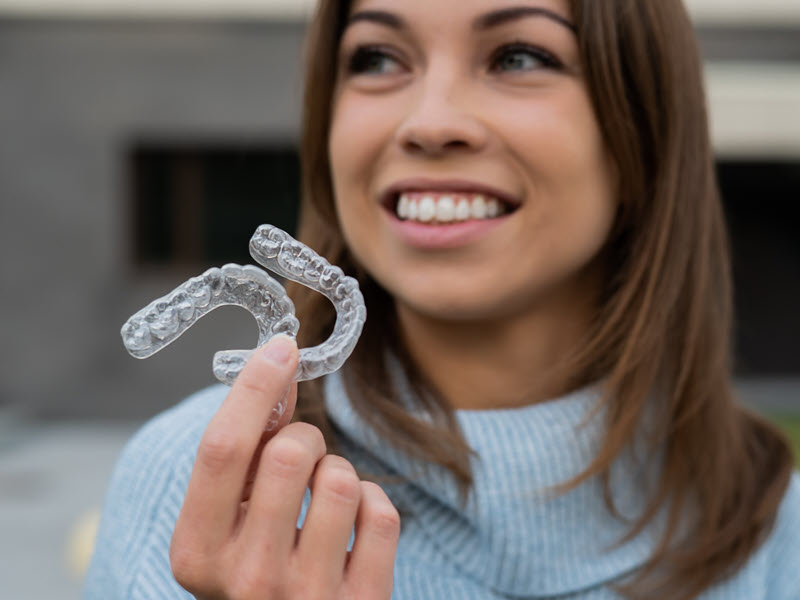Overview of Full Arch Dental Implants

Full Arch Dental Implants Overview (Straumann)
Benefits of Full Arch Dental Implants
Full arch dental implants replace an entire arch of missing teeth. This differs from a single tooth dental implant which replaces a single missing tooth. With a full arch dental implant, the arch serves as replacement teeth for either the entire upper or lower part of your mouth. Unlike traditional dentures, these implants anchor directly into the jawbone, just like natural teeth.
Full arch dental implants offer many benefits. These include restoring the function of natural teeth, improving smile aesthetics, and supporting long-term oral health.
Restoration of Functionality
Dental implants are a restorative dentistry procedure. The main restoration is the function of the teeth by the dental implants.
Full arch dental implants make eating easier. They provide a stable base that allows you to bite and chew food just like natural teeth. Unlike dentures that can slip, full arch implants stay in place firmly.
Unlike with traditional dentures, this stability means you can enjoy all kinds of food without worry. The implants help improve speech as well. With a solid dental structure, you can speak clearly and naturally. Your comfort while talking and eating increases.
Aesthetic Improvements
While the primary benefit of dental implants is restoration of function, there is also a cosmetic dentistry aspect to dental implants as well – implants give you back your smile! Full mouth dental implants replace your missing teeth while looking natural and matching well with your existing teeth. This can boost your confidence because you can smile freely without feeling embarrassed.
The implants serve the vital purpose of preventing bone loss in your jaw, which helps maintain your facial structure. By preventing the deterioration of the jaw bone, you’re also preventing the loss of additional teeth. The natural look of your teeth also improves overall facial aesthetics. You’ll find people noticing the positive change in your appearance.
Long-Term Oral Health
Full arch dental implants encourage long-term oral health. They reduce the risk of further tooth loss by providing a solid structure for your jawbone. The implants integrate with your bone, preventing bone deterioration.
This support helps keep your gums healthy too. Regular cleaning and dental checkups keep the implants in top condition, reducing chances of gum disease. Your oral hygiene improves, leading to overall better dental health.

Full Mouth Dental Implants Can Restore Your Smile and Allow You to Enjoy the Foods You Used to Love Eating
Types of Full Arch Implant Systems
All-on-4 Dental Implants ® / Hybrid denture/bridge on 4-6 implants
All-on-4 Dental Implants ® / Hybrid denture/bridge on 4-6 implants involve placing four implants in the jawbone. The implants anchor a full set of prosthetic teeth. This method works well for people who have lost all teeth on arch
The 4-6 implants are strategically placed to provide maximum stability. This minimizes the need for bone grafting. These implants offer a quick recovery, often known as “teeth in a day”.
Benefits:
- Fewer implants needed
- Faster procedure
- Immediate load capability
Considerations:
- Not suitable for those with severe bone loss
- May require regular check-ups
Ideal For:
- Individuals seeking a permanent dental solution
Implant-Supported Bridges
Implant-supported bridges are ideal when several teeth are missing but not the entire arch. This system uses implants as anchors at both ends for a dental bridge.
You’ll get stability without affecting surrounding teeth. The implants serve as abutments, supporting the bridge in place. This method works well for groups of missing teeth.
Benefits:
- Preserves jawbone
- Provides natural look
- Long-term solution
Considerations:
- Requires adequate bone density
- Can be costly
Ideal For:
- Patients missing several neighboring teeth
Implant-Retained Dentures
Implant-retained dentures are another tooth replacement option. They are removable overdentures attached to two or more implants. The implants provide stability, improving comfort and chewing ability.
These dentures click onto attachments, making them easy to remove for cleaning. Unlike traditional dentures, they don’t rely on adhesives.
Benefits:
- Improved stability
- Easier maintenance
- Cost-effective
Considerations:
- May need adjustment over time
- Proper care is essential
Ideal For:
- Those needing a budget-friendly option
Each type of full arch implant system has unique features and benefits. Your dentist can help you choose the best option for your specific needs.
The Implant Surgery Process
Full arch dental implants involve multiple steps. The process includes an initial consultation, surgery, healing, and placing the final prosthesis. Each step ensures the success and stability of your new teeth.
Initial Consultation
You start with a visit to the oral surgeon or periodontist. In our Fort Collins dental office, you’ll be meeting with Dr. Murphy. During this visit, your doctor examines your mouth and gums. X-rays and 3D scans may also be taken. Your dentist will make sure that you’re a good candidate for the surgery.
These tests help plan the surgery. They ensure the implants will fit correctly in your jaw. You and your doctor will discuss treatment options and costs.
The doctor reviews your medical history. Any health conditions or medications will be considered. You will receive instructions on how to prepare for oral surgery.
Surgical Procedure
The first step in the surgical procedure is removing any damaged teeth. You may have to undergo tooth extraction for any teeth that can’t be salvaged. Next, the surgeon drills small holes into your jawbone.
Implant placement happens next. The surgeon inserts metal screws (implants) into the bone. These screws serve as the foundation for your new teeth.
In some cases, bone grafting may happen if your jaw lacks enough bone. This grafting ensures the implants have strong support. Your gums are then stitched up to begin the healing process.
Healing and Osseointegration
After surgery, your jaw needs time to heal. This stage is crucial for osseointegration. During osseointegration, the implants bond with your jawbone.
This process usually takes several months. Your doctor may give you specific care instructions. Pain medication and ice packs can help manage discomfort.
During healing, you will have regular check-ups. The doctor monitors the healing and checks the implants’ stability. Following these visits ensures the implants are integrating well.
Placement of Final Prosthesis
Once osseointegration is complete, you are ready for the final prosthesis. The doctor begins by placing abutments onto the implants. These abutments connect the implants to the prosthetic teeth.
Impressions of your mouth will be taken. The final prosthesis is custom-made to fit your mouth. This step ensures the teeth are secure and functional.
Finally, the prosthetic teeth are attached to the abutments. You may need a few adjustments to ensure a perfect fit. Care instructions will be given to help you maintain your new teeth.
Materials Used in Full Arch Implants
Various materials can be used for full arch dental implants. Each has its own benefits for strength, aesthetics, and compatibility with the body.
Titanium Implants
Titanium is commonly used for the implant posts. This metal bonds well with bone, a process called osseointegration.
Titanium offers several benefits. It is both strong and lightweight. These properties make it ideal for supporting the dental prosthesis. The metal is also biocompatible. This means your body usually won’t reject it. Additionally, titanium resists corrosion. This ensures the implant’s durability.
Titanium implants have a high success rate. Most patients report few complications. Maintenance involves regular dental hygiene practices. This keeps your implants in good condition.
Porcelain and Acrylic Prosthetics
Porcelain and acrylic are often used for the prosthetic teeth attached to the implants.
Porcelain:
- Mimics natural tooth color and translucency.
- Highly durable and stain-resistant.
- More expensive than acrylic.
Acrylic:
- Less expensive option.
- Easier to adjust and repair.
- Less durable and may wear out faster.
Both materials offer benefits. Porcelain looks more natural, but costs more. Acrylic is cheaper but may need regular replacements. Choosing between porcelain and acrylic depends on your budget and cosmetic goals.
Zirconia Options
Zirconia is another material for implant-supported prosthetics. This ceramic material has grown in popularity for several reasons.
Zirconia is very strong. It can withstand significant chewing forces. This makes it suitable for full arch implants. Zirconia is also biocompatible, so it’s less likely to cause allergic reactions.
Zirconia prosthetics look natural. They are white and can be shaped to resemble real teeth. This material resists stains and does not easily chip or crack. Zirconia can be more expensive than other materials. However, its durability often justifies the cost.
Choosing zirconia means you get a blend of strength, aesthetics, and biocompatibility. This makes it a popular choice for many patients needing full arch implants.
Cost and Insurance Coverage
Full arch dental implants aren’t inexpensive, but there are insurance and financing options available to help offset expenses. Here’s what you need to know about pricing and coverage.
Understanding the Cost of Full Arch Implants
Full arch dental implants replace all the teeth in one arch. Costs vary based on materials used, location, and dental office. All-on-4 implants range from $12,000 to $24,000 per arch. Options like mini dental implants may cost less, around $500 to $1,500 per implant.
Full mouth (both arches) can climb between $60,000 to $90,000 depending on the number of implants and the complexity of the case. These costs cover the implant procedure, the artificial teeth, and any necessary preparations like bone grafts.
Insurance and Financing Options
Dental insurance plans may cover part of the implant procedure. Typically, dental insurance covers a limited amount (as much as 50% in many cases for restorative procedures like dental implants).
Consider looking into financing options. Many dental offices offer payment plans to help you manage costs over time. Third-party financing companies also provide loans specifically for medical procedures, including full arch implants. These options allow spreading the cost into manageable monthly payments.
Frequently Asked Questions
Here are key details about full arch dental implants, including costs, procedures, recovery, number of implants, types, and durability.
What is the average cost of full arch dental implants?
The average cost ranges from $15K – $25K per arch. Prices vary based on your specific needs and your dentist’s location.
What should I expect during the full arch dental implant procedure?
First, your dentist removes any damaged teeth and allows healing time. Next, the implants are placed in your jawbone. It takes several months for the implants to integrate with the bone. Finally, the permanent teeth get attached to the implants.
How long is the recovery period after receiving full arch dental implants?
Recovery usually takes about 6 to 8 months. It involves several stages, including healing after tooth removal and implant placement. Each stage requires its own recovery period.
How many implants are typically necessary for a full arch restoration?
For a full arch, four to six implants are common. These implants support a full bridge of teeth, ensuring stability and function.
How long can I expect my full arch dental implants to last?
Full arch dental implants can last 20 years or more with proper care. Regular dental check-ups, good oral hygiene, and avoiding harmful habits will help extend their lifespan.















